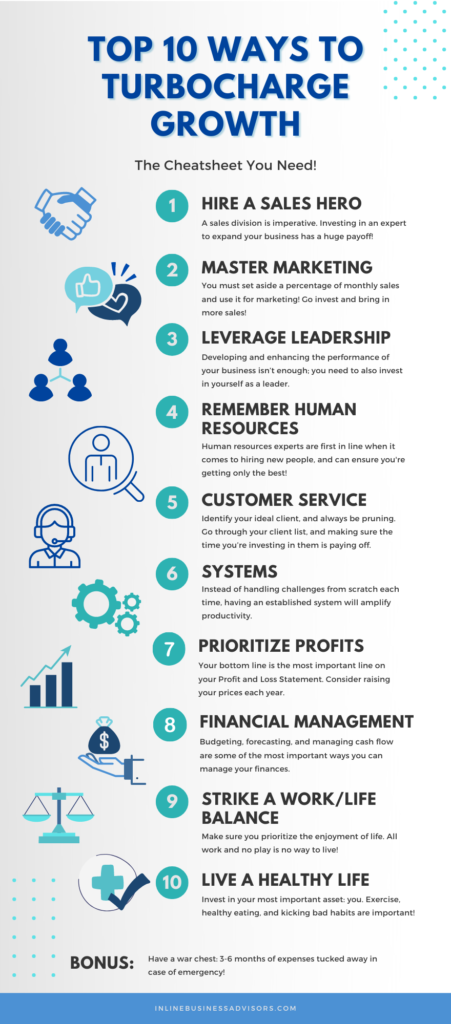Some things in sales will never change. Businesses develop products and services, find creative ways to promote them, and, hopefully, consumers purchase them. Regardless of the technology, economy, or platform, the cyclical nature of supply and demand remains a stalwart in the economy. As steady as the consumer cycles are, four sales truths remain true in any industry and for any business.
Incorporating these principles into a sales strategy builds a strong foundation for success and longevity in the marketplace, enabling sales personnel to adapt to consumer trends. The best salespeople adapt and pivot, keeping themselves relevant to consumers, by learning these principles and applying them to everyday tasks. Mastering these four principles is invaluable to conquering the sales domain.
Why These Sales Truths are Key to Your Success
A salesperson is an invaluable resource for any business seeking growth. Effective salespeople are not an accident. Instead, they are motivated by a devotion to solving problems for others. This devotion is apparent to potential clients and establishes a rapport that is often more important than the bottom line and can lead to repeat business. Referrals are essential, but repeat business is considered more valuable because a consumer liked a product or service to the point where they repurchased it.
A valuable salesperson also offers consumers a face to go with the company.
Salespeople are a direct link between the business and the consumer and can relate concerns to the business that the consumer may have, or other pertinent information. In this role, they act as a liaison with a finger on the market’s pulse. This abstract form of marketing allows potential customers to relate to a company representative, which is still an essential element, even in digital businesses.

Profit Margins
There are numerous reasons why individuals start their businesses. What they all have in common is profitability, which businesses fail to achieve without. Salespeople who understand these sales truths attract the right kind of customers. If a business’s bottom line is thin, the owner can raise prices. This could worsen the situation, especially in a shaky economy.
A good salesperson is an asset, especially in this situation. By being on the “frontlines,” salespeople understand what a specific clientele is looking for and what they are willing to pay for it. This is invaluable information for any organization. It is also an excellent way to determine whether prices need to be raised or if there is an alternative solution, such as improving marketing.
The information provided can show an owner which clients to keep and which ones to move away from. There can be times when valuable resources are poured into a particular client. However, it is more advantageous for the business to cut ties and use them elsewhere. The face-to-face interactions between a salesperson and the client are often the best source of information about this, and how to resolve any issues.
Sales Is About Solving Problems
Sales is not about pitching or persuading. It is about helping people fix something that matters. That is the heart of it. When someone is ready to spend their hard-earned money, it is usually because something is broken, missing, or not working quite right. A good salesperson understands that. They do not just sell. They listen, they understand, and they offer something useful in return.
People can tell when a sale feels forced. Most of us shut down the moment it turns pushy. But when someone genuinely understands what is needed and shows that they have done the work, it becomes something else entirely. That is when trust happens, and that is when business gets done.
Even when the market feels shaky, one thing stays the same. People still want to solve problems. The ones who succeed in sales are not the loudest. They are the ones who show up with a solution.
This is one of those sales truths that does not change with trends. And it is why expert guidance matters. It is not just about avoiding mistakes. It is about moving with clarity. Good coaching helps turn effort into momentum, not waste. It cuts through distractions and aligns action with meaningful goals.
Because time cannot be refunded. The right support makes every moment count.

Listening Beats Talking
The adage about having two ears and one mouth rings true in sales. The second principle closely aligns with the first about resolving a problem. Salespeople cannot know a potential buyer’s problem without listening to them. Doing so also shows the potential buyer that they care about their issue and will do what they can to alleviate it every time.
The best salespeople don’t just speak well; they hear what is being said. This pivotal skill engages the seller with the buyer and allows them to gauge exactly what the buyer is looking for. Understanding where the buyer comes from opens doors for larger or future purchases.
One of the sales truths to remember is that people generally want to be heard and will relate better to those who listen to them, especially when dealing with business matters. Listening to the issue is an excellent way to relate to consumers. It is also a commendable personality trait that most people admire. The potential buyer is talking to a salesperson because they have a problem or need it resolved.
Never Sell to Someone Who Doesn’t Need or Want It
After listening to a buyer’s problem and what they are in the market for, never sell to the buyer if they do not want or need what is being sold. You’re not doing them any favors and wasting your time.
Another advantage of listening to a potential buyer is that the seller knows whether the consumer is interested in their product or service. Instead of wasting time trying to sell to someone uninterested, they could, and should, be trying to sell to someone else.
Another disadvantage of selling to someone uninterested is that it could close the door on future sales. In this negative situation, the potential buyer will likely get frustrated, so why would they listen a second or third time?
Worse, negative interactions are more likely to be told to others than positive ones. This could harm a salesperson’s reputation and potential market. It is always best to politely back out of this situation and move on to the next client. Doing so shows respect to the buyer and may lead to future sales because of the extended courtesy.
Avoiding giving a sales pitch to someone who is not interested shows them that they are valued as a person, not just a consumer. This relatable skill allows people to put their guard down and build trust in the sales relationship. Building trust and listening to a buyer’s concerns are among the most essential principles to be applied to sales and can lead to future sales from recurring customers. Understand these sales truths and you’ll save both your time and your prospect’s.

Adaptability Is the Most Important Skill
Markets are fickle and governed by macroeconomic and microeconomic elements that evolve daily. Markets shift, and a good salesperson is aware of these simple sales truths: Buyer behavior changes, sometimes overnight. What worked last year may flop tomorrow, and this tenet will never change. The best salespeople learn, pivot, and stay ready. This approach enables salespeople to adopt new strategies or products to keep up with buyer demand and changing tastes.
Customer Service
Customer service is vital to any business and can make or break it, depending on customer perception. Applying these four sales truths to a sales team will make them more relatable to customers while offering them a direct link to the business. Face-to-face interactions are just as significant in digital sales as before the technology boom.
Applying these four principles is about more than improving sales. It is about improving customer relationships and making them feel valued. Direct interactions allow a company to identify its clients and adapt products and sales approaches to match what the customer wants. When a business understands its target base, it can intentionally focus on this group of customers, saving time and money on wasted sales.
If you want to get better at sales, it is imperative to master these four principles. Then, repeat them. Over and over. They are that important and will never change. No matter the technology, product, or platform, these are the four principles that every good salesperson knows.

Larry Vivola is a successful business coach who coaches entrepreneurs anywhere in the world via Zoom. If he’s not coaching he’s making meatballs and entertaining friends and family!
P.S. Whenever you’re ready, there are 3 ways I can help you:
#1: Business Growth – If you’re a business owner, I will help you make more money and enjoy more leisure time. Together, we will get you the freedom you deserve! Click here to book a 15 minute discovery call!
#2: Become a Coach – If you’re a coach or an expert-at-anything, I will help you build an online, dream six-figure coaching business! Click here to book a 15 minute discovery call!
#3: If you want to watch my daily business and life truths videos. Click here!

